Ginza Edit
Beauty from Japan. From our world to yours.
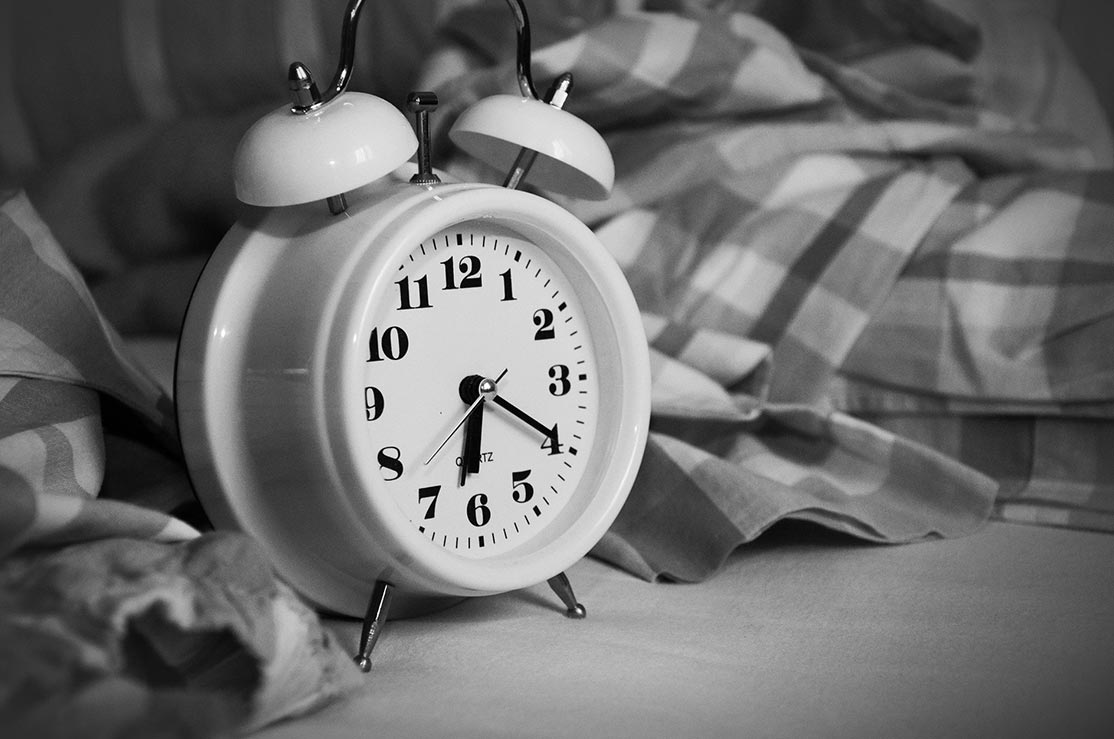
WHY AN EVENING RITUAL COULD BE
THE SECRET TO GREAT SLEEP
STORY BY SUZANNE SCOTT
Can you remember the last time you experienced truly great sleep? The last time you easily fell asleep, went through the night without waking, and woke feeling refreshed and energized to face the day? No? You’re not alone.
According to Australia’s Sleep Health Foundation, around one in three people experience mild insomnia [1], while the National Sleep Foundation in the US estimates that around 45 percent of Americans are affected by poor or insufficient sleep [2]—and poor sleepers are less likely to be productive in their waking hours [3]. The situation does not look any better in Europe, where The Great British Bedtime Report from The Sleep Council found 70 percent of Brits sleep for less than seven hours a night, and 27 percent of people frequently experience poor sleep. [4]
There’s more at stake than feeling a little off-kilter after a poor night’s sleep. The impact of consistently poor sleep is far-reaching, with the UK’s National Health Service warning that inadequate sleep can contribute to serious medical conditions, including diabetes and heart disease, and even shorten life expectancy. [5] Thankfully, there is plenty you can do to improve your hours between the sheets.
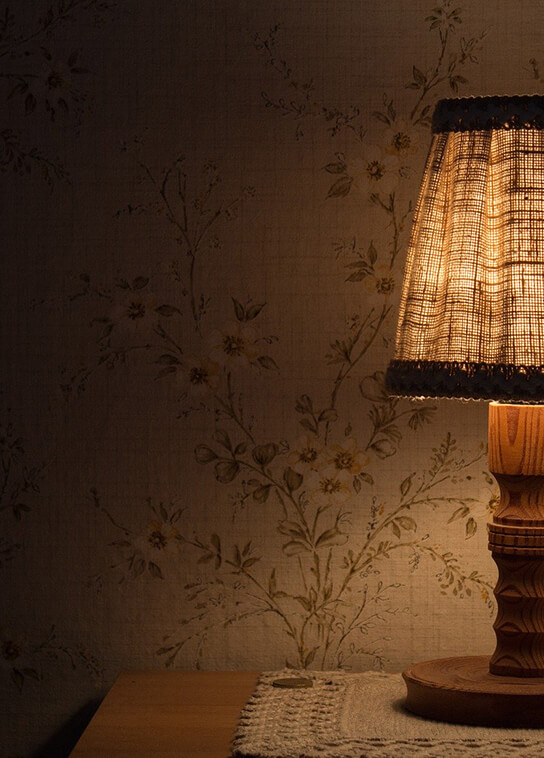
-
HOW TO EMBRACE
AN EVENING RITUALMany of us are familiar with a morning ritual, our time-efficient routine of shower, breakfast, skincare and, potentially, a workout. We have naturally designed a routine that readies us for the day ahead and gets us out of the house on time. But here’s the thing, an evening ritual is as, if not more, important. It can literally mean the difference between a great night’s sleep and a terrible one.
Here are four changes you can make this evening…
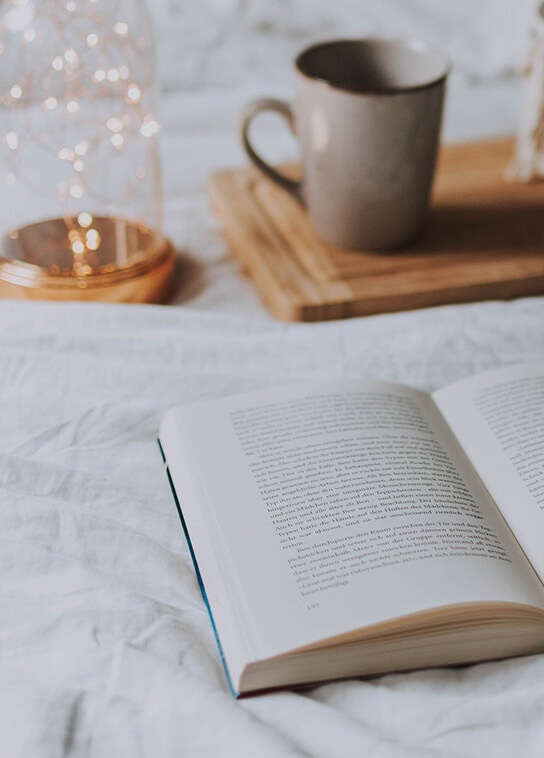
-
01ESTABLISH A ROUTINE
As with many areas of life, a great routine is the key to success. Set yourself a realistic bedtime; as in a bedtime to go to sleep, not to spend half-an-hour scrolling through social media. After a few days of going to bed at the same every night, it will soon become an easy habit. Setting a bedtime is step one, step two is to stop looking at your cell phone, computer and TV at least an hour before heading to bed, so their blue light doesn’t disrupt your sleep. [6] Instead, read a few chapters of a book or listen to soothing music.
An evening skincare ritual is a welcome addition to your routine, as spending time nurturing your skin is an act of self-care. Begin with a cleanse using SHISEIDO Extra Rich Cleansing Milk to remove dirt and debris accumulated during the day. If you wear a lot of makeup or spend your day anywhere particularly polluted, consider adding a cleansing brush into the mix to take your cleanse to the next level. When your skin is feeling clean, treat it to 15 minutes with SHISEIDO BENEFIANCE Overnight Wrinkle Resisting Cream, which works through the night to target wrinkles related to lack of sleep and SHISEIDO BENEFIANCE Pure Retinol Intensive Revitalizing Face Mask, which delivers a dose of vitamin A to help brighten and smooth skin.
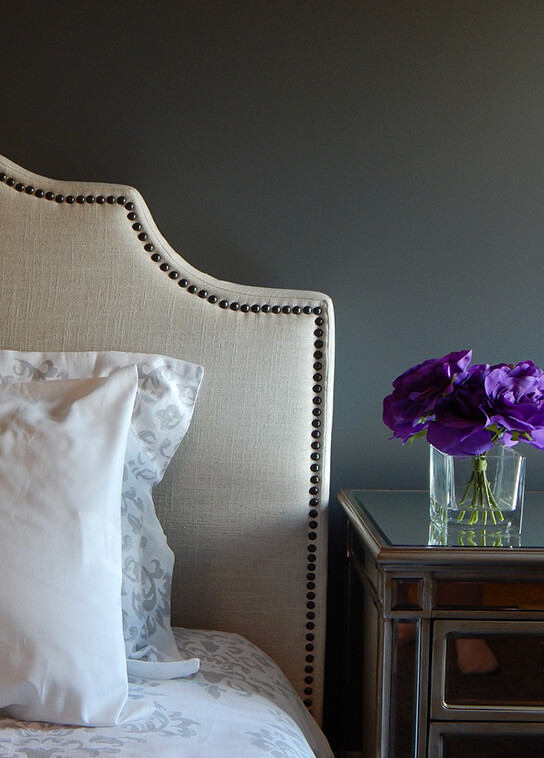
-
02SET THE SCENE
It’s important to create an environment that is conducive to sleep. Ensure your mattress and pillows are comfortable and not too soft, and buy the best quality linens you can afford so they feel nice on your skin. Keep your bedroom temperature on the cool side and if you’re easily woken by sounds from your neighbors or the road outside, sleep with noise-cancelling earplugs or play a white noise app to neutralize offensive noises. Various studies show that certain scents can have a relaxing effect on the brain. [8] Scent your room with soothing essential oils of lavender, vetivert and chamomile, or look for a subtle pillow spray combining the three.
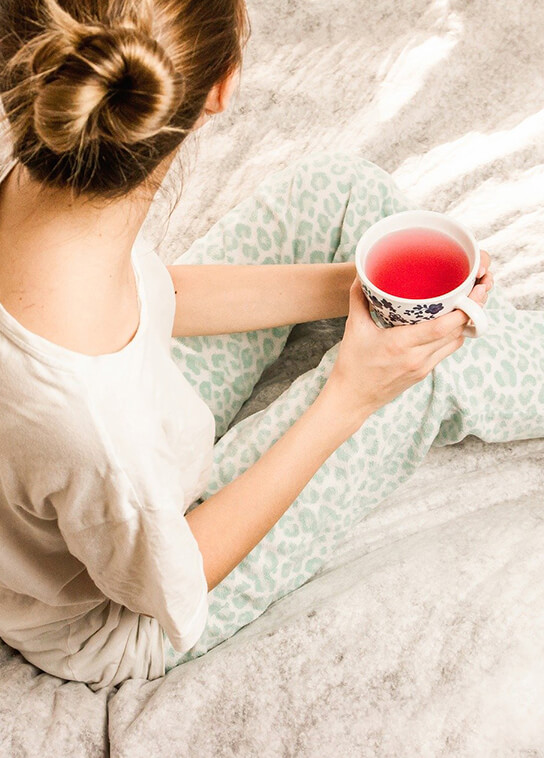
-
03AVOID EATING HEAVY MEALS
BEFORE BEDTry to eat early in the evening and steer clear of calorific meals before going to bed [9] to avoid being woken in the night by heartburn or digestion issues. The night is a time of renewal—as the human body does its best repair work while it’s asleep—and eating a heavy meal not only puts strain on your digestive system, but also uses valuable energy that would be better spent elsewhere.
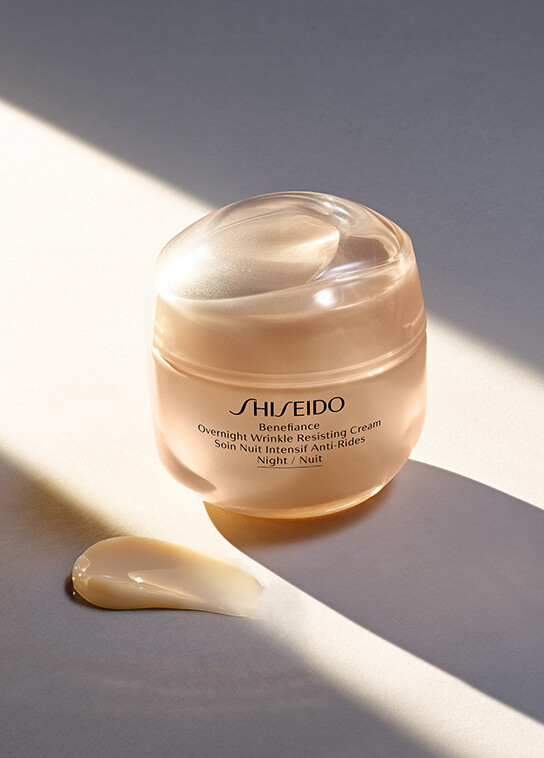
-
04LIGHT UP (AND DOWN)
There was a time when human beings slept when darkness fell and woke with the sunrise. This couldn’t be further removed from how we live our lives now. We spend much of our day and evening under artificial lights and propped up in front of blue lights from cell phones, computers and other devices. Most worryingly, our exposure to natural daylight has drastically fallen. Studies show that office workers who spend more time in natural light during the day and less artificial light in the evening, sleep better than others [10]. To support your natural circadian rhythm, make sure you get a daily dose of daylight during your lunch break and, if it’s still dark when you wake up in the morning, try waking to a light-up alarm clock that gradually builds in brightness, alerting your retinas to daylight and gently rousing you from sleep.
- Ref:
- [1]https://www.sleephealthfoundation.org.au/pdfs/Insomnia.pdf
- [2]https://www.sleepfoundation.org/press-release/lack-sleep-affecting-americans-finds-national-sleep-foundation
- [3]https://www.sleepfoundation.org/sites/default/files/inline-files/Sleep%20in%20America%202018_prioritizing%20sleep.pdf
- [4]https://www.sleepcouncil.org.uk/wp-content/uploads/2013/02/The-Great-British-Bedtime-Report.pdf
- [5]https://www.nhs.uk/live-well/sleep-and-tiredness/why-lack-of-sleep-is-bad-for-your-health/
- [6]https://www.health.harvard.edu/staying-healthy/blue-light-has-a-dark-side



